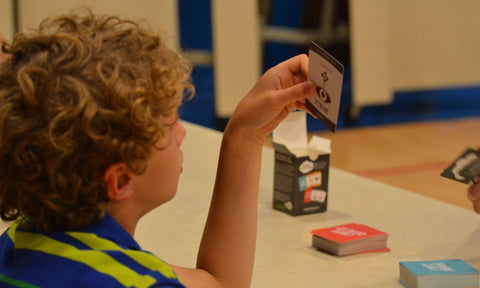Having a healthy level of self-esteem can pave the way for living a happier, healthier life. It’s a lot easier to successfully maneuver through life when you’re confident in your abilities and can adopt a positive attitude when coping with adversity.
Those who deal with self-esteem related issues may find group therapy sessions to be incredibly enriching. Participating in these sessions can provide a strong network of support for individuals, where they feel less alone knowing that others are experiencing something similar.
Besides providing patients with a strong support system and showing them how to effectively manage their issues, incorporating group therapy activities for self-esteem into your sessions can work wonders for building self-esteem and improving confidence for patients of all ages.
Group therapy activities for self-esteem
Looking for fun games to play in group therapy? Here are 3 simple but effective self-esteem activities for you to bring into your next group therapy session!
1. The compliment fan
How to play
This game works better for larger groups with more than 4 people. Get everyone to sit around in a circle. Hand everyone a pen and a sheet of blank paper. Then get everyone to construct their own fan by folding the top down (by an inch) and flipping over the paper to do the same thing.
Repeat this step until the entire sheet of paper has been folded down into a fan. Next, get everyone to write their name down on the first fold.
Now comes the fun part. Each player passes their fan over to the person next to them and they get a couple minutes to write down something positive about the owner of the fan. It can be something as simple as complimenting someone’s outfit or even sharing with them what you like the most about their personality. Once the fan makes it back to its original owner, give everyone a couple minutes to read through their compliments!
What can this group therapy activity bring to your sessions?
Whether you’re looking for self-esteem activities for teens or adults, this is by far one of the easiest games to set up!
Reading a page filled with others’ positive thoughts about you can work wonders when it comes to boosting self-esteem and improving confidence. This can also provide individuals with a sense of belonging because it shows them that people are actually noticing all these wonderful things about them.
2. Totem
How to play
Totem is a fun card game that’s suitable for players of all ages. Players take turns constructing a Totem for one another out of an Animal Card (representing a strength) and a Quality Card to best describe the other players. Each group member receives a moment in the spotlight to reflect on why they chose these specific cards to describe the other players.
What can this group therapy activity bring to your sessions?
You know that great feeling you get when you receive a compliment? That’s exactly how you feel after playing a game of Totem!
Having the opportunity to reflect on one another’s best strengths and qualities can effectively break down barriers in communication between group members – helping them connect on a much deeper level. Ultimately, hearing others tell you what they like about you the most can be incredibly effective when it comes to building self-esteem and improving confidence in teens and adults.
Another advantage to bringing Totem into your group therapy session? Every player gets the same amount of time in the spotlight, which is a great way to give shy or reserved patients an opportunity to step out of their comfort zone and to get into the habit of feeling more at ease with communicating within the group setting.
3. Winner/loser
How to play
In pairs, each player takes turns to reveal a past negative experience to their partner. The listener then retells that same story but provides a version that only focuses on the positive aspects of that experience.
What can this group therapy activity bring to your sessions?
This group therapy activity gives group members a chance to get to know each other better and to connect on a deeper level (which isn’t possible in a larger group setting).
By being exposed to someone else’s perspective (a positive one) on a past negative experience, individuals can break away from their traditional ways of thinking – opening themselves up to adopting a positive, assertive attitude to cope with their problems.






